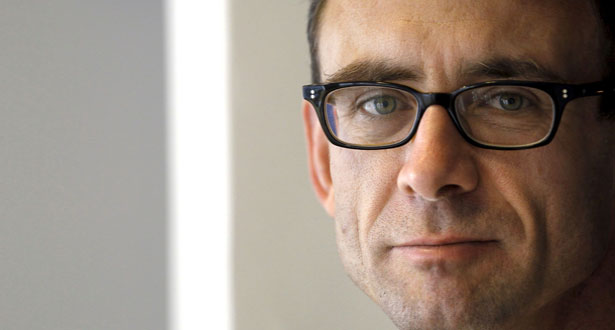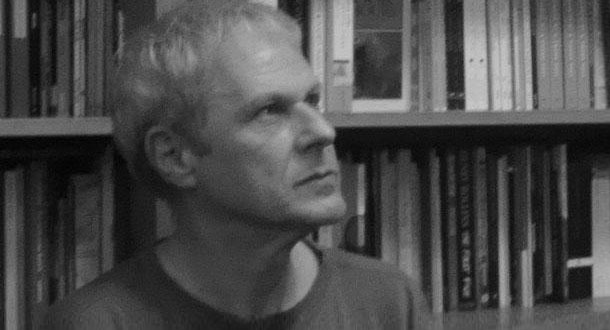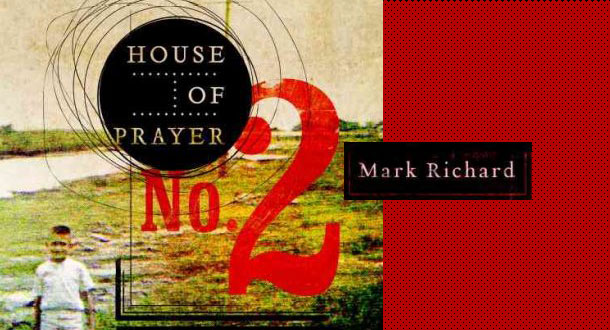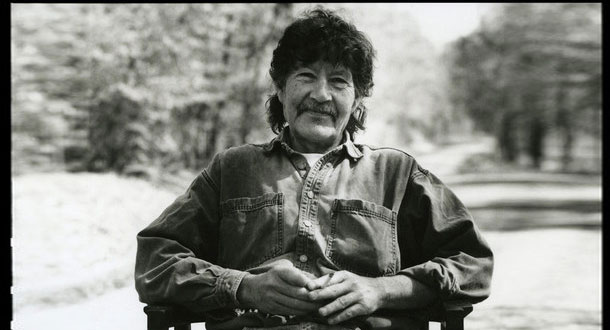Patrick Wensink rose to incredible heights of fame when Jack Daniel's politely asked him to change the cover of his novel, Broken Piano for President. It's a story that LitReactor broke, and got none of the credit for, but hey, that's life, and we were honored to be there at the start of the journey.
Since then, Patrick has become a good friend of the site, teaching some great classes about how to mix improv and fiction writing (as an improv comedian, he would know how). He was a great source of intel for me as I was approaching fatherhood, being a writing-dad himself.
And here he is with a new book! Fake Fruit Factory is about a small town in Ohio that's desperate for tourism dollars, so the zany townsfolk and their germophobic mayor are constantly looking for new ways to attract guests. Then a reality show gets involved and a NASA satellite is hurtling toward the town and also there is a mummy.
It's a great read, because it works on two levels—on one hand it is very, very funny. Wensink's jokey style lends itself well to the wide-ranging cast of characters. It's also a very thoughtful and personal look at the plight of small town America. I'd tell you more but we talked about it plenty, so dig in:
This book is set in the fictional town of Dyson, Ohio. Where is Dyson? Is that the town you grew up in? A place you lived?
I grew up in a town called Deshler, Ohio. Very similar to Dyson in a lot of ways, but dissimilar in others. We never had a plastic fruit factory, a satellite crash or a benevolent mummy, sadly. But it was a lot like Dyson in that it was a once proud, independent town that has now fallen on hard times.
One of my favorite things right off the bat was how it was a portrait of a town that was "whoring" itself out. I think that's the word you used. So desperate for tourism dollars that it was a rush to see what goofy stunt would get people through the door. What attracted you to that idea?
Like all bizarre ideas in fiction it came from real life. About the time I was starting Fake Fruit Factory, about five or six years ago, I guess. I was working as a freelance copywriter for a very shady, fly-by-night British website. It was kind of like a knockoff Hotels.com. I was given the task to write about 400 towns in California and 300 towns in New York. About 300 words each article. I needed to find at least three things for visitors to do in each of these places.
It's no sweat when you're writing about Manhattan or San Francisco. But finding stuff to do in places like Gilroy, California, proved tricky.
And what I found were a lot of small towns clawing for dollars to stay alive. They would exploit whatever history or commerce they had to share with the world. Like, Gilroy, for example, grew a lot of garlic so the thing to do there was, like, visit the BMX race track and see the Gilroy Garlic Festival.
It's kind of charming, but I also saw a lot of similarity to Deshler, my hometown. Except, we don't have anything sexy to promote, like garlic.
What's the main attraction in Deshler. Like, if I was going there tomorrow, what's the thing you would tell me to do?
Trains. The one and only thing my hometown is known for these days is trains. And by that, I mean there is a lot of freight train traffic. And people who are really into watching freight trains sit in a little park where the north/south and east/west tracks crossover. They sit and listen to CB radio of the engineers, take pictures and generally just... watch the trains.
This attracts about 50 people a weekend, so it's not exactly a cash cow. You know, all that "big city train watching" money!
Good god. No wonder you left.
But it's not the tourism that makes or breaks these places. It's the independence. Deshler, like Dyson, never had to go around trying to hoodwink tourists into visiting. When I was a kid there were several factories. We were known as the only place in America that made mailboxes with little red metal flags for a while. We also made the metal paint rollers. There was a lumber yard, a hardware, a dentist, a doctor, a grocery. Over time it was basically all replaced by a Wal-Mart 20 miles away.
I have a huge love for small town America and it kills me to see it vanishing. I also recognize that young, educated, upwardly-mobile people like myself leaving is part of the problem. So this book has a lot of guilt buried inside it.
That leads into my next question. This novel kind of exists in two states. On one hand, it's a very funny story about weird characters bouncing off each other. On the other hand, it's a portrait of small town America withering on the vine. What was the nexus point? Did you go in wanting to write a fun ensemble? Or was it that deeper sense of loss?
I went into Fake Fruit Factory looking to have fun, for sure. I liked the idea of an ensemble of small town folks banding together and fighting among themselves. But that's not exactly enough to sustain 300 pages. At least not to me. So I was also curious about this real case of a NASA satellite crashing in Australia. I blended the two together and it sort of created this existential dread that I wasn't expecting. I wasn't expecting to write a small town comedy that was secretly about the death of small town America. But once it started I grew obsessed with the idea.
... Did I mention my guilt?
In a larger sense—and now we're getting into the dangerous "too big for this interview" stuff—but I have to wonder if the small town model is even sustainable anymore. You're right in a sense—people leaving is part of the problem. But there's nothing to keep them there. One Wal-mart can wipe out an entire business ecosystem.
That's sort of the wrestling match I had going on for the last five years. I was exploring the idea of whether small towns can even sustain themselves today but also trying to entertain people enough to read the book. I am not unlike a small town trying to woo visitors, myself! Personally, I don't think small towns will survive in the classic, independent sense. That's why so many are turning into tourist destinations or ghost towns. The margin in between is tiny.
In terms of process—you've got a big ensemble here. A lot of POV characters, a lot of ground to cover, multiple locations... how did you keep all that straight? Was it a lot of planning and outlining?
Almost no planning or outlining beyond a sentence or two at the bottom of the manuscript about an idea for the next chapter. That being said, I am not some kind of organizational wizard. The book took about six years to see publication, so it was endless rewrites. Let me check how many drafts I did... one sec...
I'd say I did about 20 drafts of the book in five years. That's where all the pieces fit together. I seem to recall some charts and graphs about what character is where and how which plot flows with the overall story.
I should have taken a picture. My entire office wall was covered in note cards. One for each chapter, and there are a ton in Fake Fruit Factory. Believe it or not, this is actually the condensed version. The original plot was 100 pages longer and had many more characters, including a team of jewel thieves.
I am a tiny bit upset I didn't get jewel thieves. But I did get a mummy. Oh, the mummy... talk about the mummy.
At the beginning of the book, the townspeople are concerned about rumors of a mummy roaming the night. As the book progresses this mummy begins giving the people of Dyson gifts. Good gifts like art, bad gifts like drugs, strange gifts like Jean Luc Godard movies and foie gras. Things one cannot get in Dyson... things a person (live or dead) could only get in the city.
I love that the book is just weird weird weird but okay this all works, and all of a sudden there's a mummy. And somehow it works.
The mummy kills many birds with a single, bandage-wrapped stone. It brings the book ever-so-slightly out of realism and is a plot catalyst, but hopefully people will see it as a clue to something bigger, which we were talking about earlier. The life and death of small town America.
Like most great artists, instead of discussing an important topic directly, I let a mummy do it for me.
I'm curious about the nexus of the fruit factory, too. It's such an odd yet familiar thing to hang the narrative on. Do you have any experience with fake fruit?
None. I worked in a soda can factory for two summers during college. And my dad, uncle, and aunt all work at the same factory, so I am very familiar with factory life. The name Fake Fruit Factory actually came first. I had heard it mentioned as some avant garde short film made decades ago. I began imagining what that film would be and all the wheels in the story got turning. Eventually, like midway through the book I finally saw the film (by a director named Chick Strand or something) and was really disappointed. It was really boring.
I am shocked to hear that!
Which part?
Fake fruit being boring. Though I realize now that's a dick thing to say. Your fake fruit is not boring.
You're telling me. I was fighting this imaginary battle of making sure my book could live up to the title. Turned out I could have set the bar lower. Though, my friend and talented author Jeff Jackson tells me Strand's other films are great. I haven't bothered to investigate.
I know you've got two children's books on the slate. What have you got coming up for us adults? Are you working on something new? Or is it all dancing gorillas, 24/7?
I am getting to be a good juggler these days. I am very lucky to make my living as a writer, but doing so means never saying no to a project. I have a lot of freelance work that keeps my child in second-hand shoes (Dad tip: Never buy new shoes for your kid. Those suckers grow really fast. Go to Once Upon a Child or something similar.) My first children's picture book, tentatively titled Go Go Gorillas! is done and coming out in 2017. On top of that, I am finishing up the sequel. Also, I am within a whisper of starting a really exciting, huge project for 8-12 year old readers. Also, I have a novel done and being shopped around by my agent and another manuscript being worked on.
I am very fortunate to be this busy and do not take it for granted. Having been fired from several real office jobs in the past, I always have a nagging fear that it will all vanish at any second.
Busy is good. It's much better than the alternative. We touched on this briefly in the other piece I did for LitReactor, but is it nice knowing you'll have some of your writing come out that you can share with your son? Because dancing gorillas are a little easier to digest for a toddler, when compared to metaphoric mummies slinging foie gras.
In theory, yes. Sadly, when 2017 rolls around my kid will be almost six. He'll probably be into other stuff by then. He's really into Captain Underpants right now. I'm probably pretty boring to him, though I read the early drafts of Gorillas to him.
Did he give notes?
"Add more poopie" was a popular suggestion.
Last question: Given your hopes and expectations for this book, is there anything you wish I had been clever enough to ask about?
I'm just relieved you liked it. Or at least faked enthusiasm.

About the author
Rob Hart is the class director at LitReactor. His latest novel, The Paradox Hotel, will be released on Feb. 22 by Ballantine. He also wrote The Warehouse, which sold in more than 20 languages and was optioned for film by Ron Howard. Other titles include the Ash McKenna crime series, the short story collection Take-Out, and Scott Free with James Patterson. Find more at www.robwhart.com.

.jpg)




